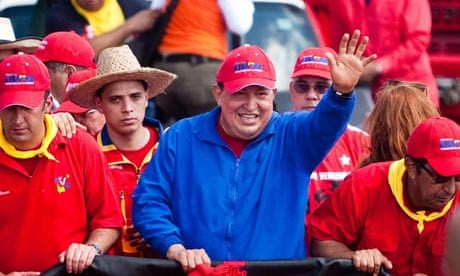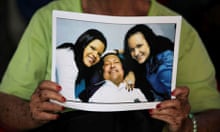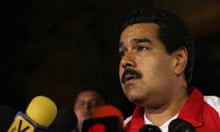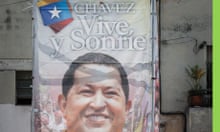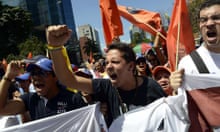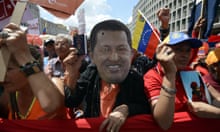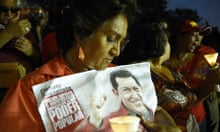Hugo Chávez seems to be at the end of his presidency. He has been in power for over 14 years, longer than Franklin Delano Roosevelt, Margaret Thatcher or Tony Bair. Thatcher and Blair had to relinquish power because their parties thought they would be better off without them. Chávez need not fear that outcome: his party would never question his leadership. His demise is more likely to resemble that of FDR, who died in office, only six months after having won a landslide electoral victory.
Chávez's sustained electoral success is remarkable because he managed to achieve it despite a dismal economic and social performance. Since 1999, the year he took over the presidency, Venezuela has the highest inflation of any Latin American country. It has also seen a fivefold increase in assassinations to arguably the highest murder rate in the world. In spite of having the largest oil reserves in the planet, he managed to reduce Venezuela's share of OPEC oil output from 4.8% to around 3%. He also managed to stimulate the largest out-migration of Venezuelans in memory.
How can electoral success be achieved under such weak foundations? It is not easy. It helps if the price of oil increases fivefold. That way, consumption can increase even if domestic production does not. The government can distribute its increased oil rent to alleviate poverty, garner support and win favors. But previous governments in Venezuela and elsewhere that have benefited from oil price hikes have not had the same electoral success.
How did Chávez do it? Political leadership, like cooking, is an art. There is definitely a large role for individual talent and creativity, and Chávez has plenty of both. But success is not independent of the ingredients you get to use. And here is a list of the basic ingredients of the Chávez cookbook that helps explain his hold on power.
First, undermine checks and balances. You can use it to eliminate any separation between party and state, so as to make government social programs a privilege of the loyal, not a right of all deserving citizens. Create a very large civilian army of political activists that are handsomely compensated by the state for their party work. Limit individual rights, expand controls on everything, including prices and access to foreign currency, and give yourself the power to nationalize any business you choose. That way, people will not want to get on your bad side. "Judicialize" politics by using the courts to put your enemies in jail or threaten them with prosecution. Make it really costly for people to oppose you. Let your collaborators steal generously, and make sure that they know you know about it. That way, they will never dare to betray you.
Second, dominate the airwaves. Limit the airing of critical views with carrots, such as government spending on ads, or by threats of fines, jail or expropriation. Act on these threats with some regularity to refresh people's memory. Leave some room to your adversaries but make sure you achieve a 30-to-1 balance of airtime. That way you can create your own narrative and prevent them from creating theirs.
Third, in choosing your narrative, be creative. Don't be limited by truth, reality or common sense. If your country does not have an external enemy, invent one. Whenever you fail, blame a conspiracy. Given your control of the airwaves, by the time people find out there is no truth to your old lies, you will have created 20 new ones.
Fourth, dehumanize your adversaries. Don't debate them or grant them any form of moral recognition. Never extend the phrase "my fellow citizens" to include those that don't vote for you. Borrow a page from the 1930s and adopt a worldview in which institutional formalities only lead to gridlock, to the benefit of the enemy. Ask for complete delegation of power from the "people" to their "dear leader" so that he can crush the enemy. Dispense with other complicated formalities.
By skillfully mixing these ingredients you will be able to perpetuate yourself in power. You will have done so at the cost of your people's prosperity and freedom. But then again, even Chávez cannot win them all.
